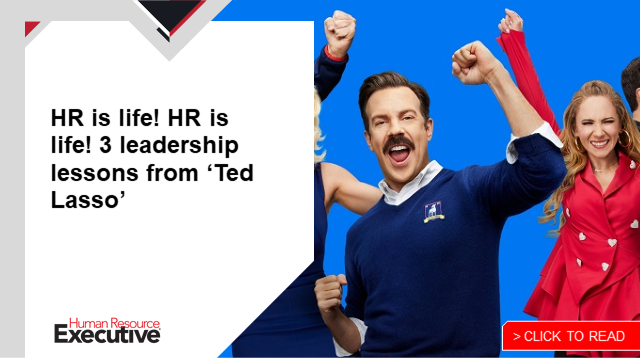Last spring, Eric Wohl changed CHRO jobs from a company that had been exploding in growth to one with an uncertain future.
For the past 25 years, Wohl has held various HR jobs at such industry giants as Accenture, Pepsi and Dish Network. He also served as CHRO at Radial, a logistics and e-commerce company that experienced rapid growth during the pandemic, before joining National Cinemedia (NCM), the largest cinema advertising network in the U.S., as its CHRO.
NCM had been a highly stable and profitable business for the previous two decades. Then “COVID punched it in the nose,” says Wohl, explaining that the company’s CEO, Thomas Lesinski, often uses that expression when describing the company’s recent struggles.
HRE spoke with Wohl about his new role, the challenges of COVID and how being an executive coach is helping him guide the organization’s leaders through the most brutal time in the company’s history.
HRE: As CHRO, how are you resuscitating a company that is struggling to get back on its feet?

Wohl: The movie industry has been particularly hard hit by COVID. It’s been difficult to come back. What it forced us to do is accelerate the pace of change. We’re challenging ourselves to refocus on every aspect of our business model. It’s not just thinking through how we manage the safety of our offices and efforts to return employees to our offices in a safe, productive and legal way but also trying to help the business launch and grow new products and services to engage with our audience in new ways.
HRE: Not many would move from a company that was booming to another on shaky ground.
Wohl: This is just where I want to be as head of HR. I came with my eyes wide open and had to up my game in many ways. At the heart of what I love most about HR is leadership and organizational development. Helping leaders and managers become much stronger [in their roles] is really gratifying for me.
Read more Insights from a CHRO here.
HRE: What areas are you planning to improve?
 Wohl: We’re focusing on re-engineering or re-imagining our organizational design; better tapping into the voice of employees; increasing the frequency and quality of our internal communications; accelerating our efforts to define our employment brand; and enhancing employee development, career planning and succession planning.
Wohl: We’re focusing on re-engineering or re-imagining our organizational design; better tapping into the voice of employees; increasing the frequency and quality of our internal communications; accelerating our efforts to define our employment brand; and enhancing employee development, career planning and succession planning.
HRE: What role will your executive coaching skills play in this process?
Wohl: What I’ve noticed is that executives need you to be a business and leadership consultant and coach, not just someone who asks questions like, “How would you approach that?” They really want expertise about their business and help in thinking through strategy, not just focusing on how to lead.
HRE: You believe on-demand is the next coaching wave. Can you point to other trends?
Wohl: [Previously,] leaders may have met with someone once a month for six to 12 months. Coaching was fairly structured. Now it’s more on-demand. They may need help with a board meeting next week. Software or mobile-based apps allow people to access coaches more frequently on a shorter-duration basis. I’m also seeing more progressive companies bring in coaches to more levels of the organization–like for directors and high-potential managers–so it’s more equitable. It’s smart because they’re growing leaders early in their career so, when they get to much larger roles, they’re more prepared. Sophisticated clients expect you to understand their business and industry, not just teach them how to be a better leader.
Related: Want to improve employee stress? Look at coaching, development
HRE: What skills are needed for this new brand of coaching?
Wohl: Be a student who’s curious, humble, open-minded and ask lots of questions to learn. If you portray yourself as an expert on some things, you better be a learner. So, slow down, know what you don’t know and be humble about it. Once you have a more grounded understanding, you need to demonstrate business acumen, not just HR technical skills. Understand how P&L and balance sheets work, how to do financial planning and business case development. The things that leaders are expected to do, HR people need to be able to do as well. It’s also important to be a good facilitator. The best answers clients need, they actually have. Great coaches bring that out of them.
HRE: Do you use a coach?
 Wohl: I do. He was a CFO in corporate America. I’ve been working with him over the last year to sharpen my game.
Wohl: I do. He was a CFO in corporate America. I’ve been working with him over the last year to sharpen my game.
HRE: Down the road, will your career lean more toward coaching or something else?
Wohl: My longest-term goal is to do some HR learning and development consulting and executive coaching in my own shop. I still get a lot of personal satisfaction from helping people build amazing careers. My coaching background can help people figure out their talents and passions and put them in opportunities where they can thrive. I majored in organizational behavior as an undergrad because I’m fascinated by how teams come together to become great organizations. I love this work.

